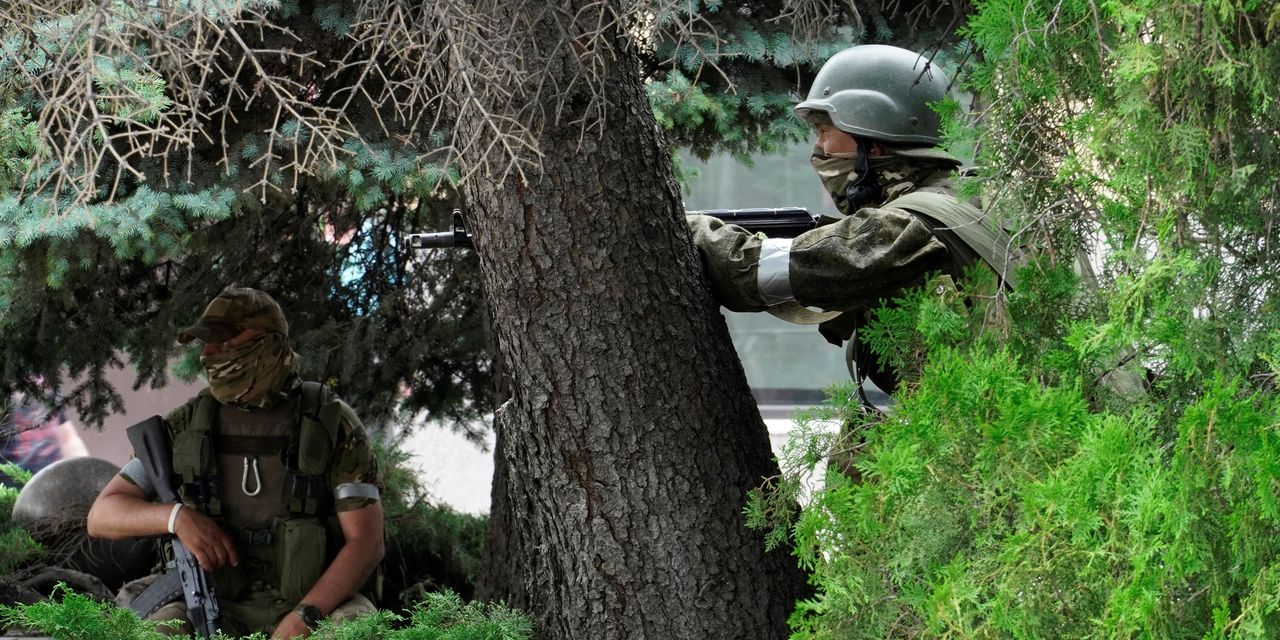
Market Extra: Here’s how a larger war effort against Ukraine may threaten Russia’s economic stability
Photo by STRINGER/AFP via Getty Images The past weekend’s brief, headline-grabbing revolt in Russia is raising questions in financial markets about what might come next, and one scenario being mentioned is a prolonged conflict with Ukraine.Liam Peach, a senior emerging markets economist at London-based Capital Economics, anticipates that Russia will devote more resources to the war in Ukraine, even as he and other analysts said the rebellion by the mercenary Wagner Group has weakened Russian President Vladimir Putin. In a note released on Monday, Peach wrote that the main scenario envisioned by his research firm is “that the war in Ukraine becomes a frozen conflict that could last for years.”So far, the financial-market impact of the open revolt, which began on Friday and ended on Saturday, has been small. The Russian ruble RUBUSD fell to its lowest levels since Ukraine was invaded last year and “that was pretty much it,” according to Marios Hadjikyriacos, a senior investment analyst at XM, a Cyprus-based multi-asset brokerage. U.S. stocks DJIASPXCOMP swung between gains and losses during the New York morning after opening flat on Monday, while gold and silver bounced back and oil futures edged up.One of the biggest long-term implications of the aborted armed insurrection in Russia, however, is a drawn-out war with Ukraine. Thierry Wizman, Macquarie’s global FX and interest rates strategist, said that “rather than embracing the prospect that the war in Ukraine may end sooner if Russia’s government is destabilized, traders have today fixated on the prospect that the war may broaden, instead.” Peach of Capital Economics said such a prolonged battle could threaten Russia’s macroeconomic stability, which has thus far been preserved under a limited war effort that’s kept inflation low, balance sheets stable, and growth still positive even with sanctions.“There are a lot of unknowns about how things will play out at this point,” Peach said. “There is a potential for a resolution to the Ukraine war but, on balance, we think that Russia is now more likely to devote additional resources to the war in an effort to appease militarist factions. While a full-blown war economy looks unlikely, a larger war effort could still threaten the unstable equilibrium that has, to this point, been able to preserve macroeconomic stability in Russia.”Russia has made limited territorial gains since the war started. Greater military spending, a larger mobilization of resources and a lower commitment among policy makers to fiscal discipline and inflation targeting “could lead to much weaker macroeconomic stability in Russia,” Peach said. Any increase in military efforts “could be met with further Western sanctions, leave Russia more exposed to lower oil prices and weaken Russia’s resilience.”
Market Pulse Stories are Rapid-fire, short news bursts on stocks and markets as they move. Visit MarketWatch.com for more information on this news.


